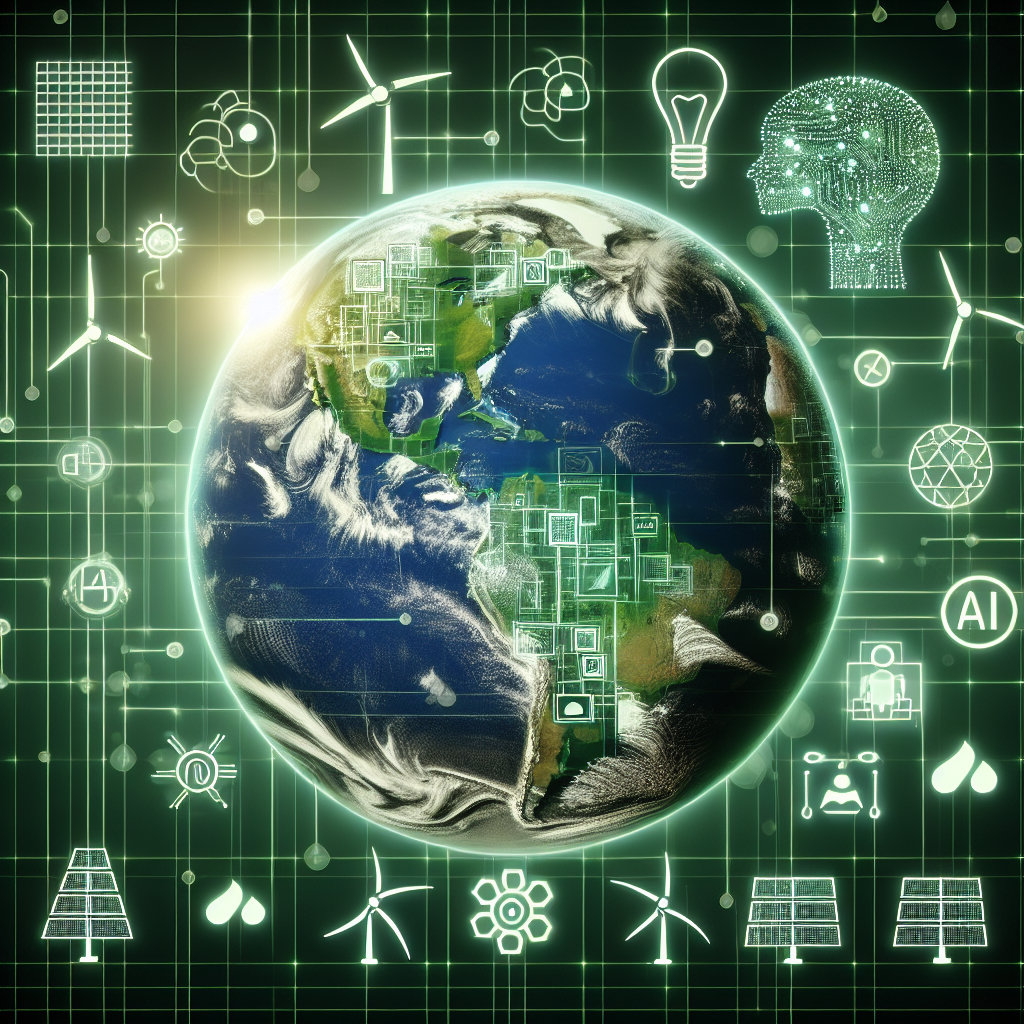AI Deployment in Climate Change Mitigation
Climate change is one of the most pressing issues facing our planet today. With rising global temperatures, melting ice caps, and extreme weather events becoming more frequent, it is clear that urgent action is needed to mitigate the effects of climate change. One potential solution that has gained traction in recent years is the deployment of artificial intelligence (AI) technology to help combat climate change.
AI has the potential to revolutionize the way we approach climate change mitigation by providing us with powerful tools to analyze data, optimize resource management, and develop innovative solutions to reduce greenhouse gas emissions. In this article, we will explore the role of AI deployment in climate change mitigation and discuss how this technology can help us address this critical issue.
The Role of AI in Climate Change Mitigation
AI technology has the potential to play a crucial role in climate change mitigation in several key areas:
1. Data Analysis and Prediction: AI algorithms can analyze vast amounts of data to identify patterns and trends that can help us better understand the impacts of climate change and predict future changes. By analyzing data from satellites, weather stations, and other sources, AI systems can provide valuable insights into how our planet is changing and help us anticipate the effects of climate change with greater accuracy.
2. Resource Management: AI can help optimize the management of resources such as energy, water, and land use to reduce waste and minimize environmental impact. For example, AI-powered systems can optimize energy consumption in buildings, manage water usage in agriculture, and optimize transportation routes to reduce emissions. By using AI to optimize resource management, we can reduce our carbon footprint and minimize the impact of human activities on the environment.
3. Renewable Energy: AI can help accelerate the transition to renewable energy sources such as solar and wind power by optimizing the design and operation of renewable energy systems. AI algorithms can analyze data from sensors and weather forecasts to optimize the performance of solar panels and wind turbines, increasing energy production and reducing costs. By deploying AI technology in the renewable energy sector, we can make clean energy more efficient and cost-effective, helping to reduce our reliance on fossil fuels and lower greenhouse gas emissions.
4. Climate Modeling and Simulation: AI can help improve climate modeling and simulation by developing more accurate models of the Earth’s climate system. By analyzing historical climate data and running simulations based on different scenarios, AI systems can help us better understand how our planet is changing and assess the potential impacts of different mitigation strategies. By using AI to improve climate modeling and simulation, we can make more informed decisions about how to address climate change and develop more effective mitigation strategies.
5. Environmental Monitoring and Conservation: AI can help monitor and protect the environment by analyzing data from sensors, drones, and satellites to track changes in ecosystems and biodiversity. AI systems can detect deforestation, monitor wildlife populations, and assess the health of coral reefs, providing valuable information to support conservation efforts. By using AI for environmental monitoring and conservation, we can better understand the impacts of human activities on the environment and take action to protect vulnerable ecosystems.
FAQs about AI Deployment in Climate Change Mitigation
Q: What are some examples of AI technologies being used to mitigate climate change?
A: There are many examples of AI technologies being deployed to combat climate change. For example, Google’s DeepMind has developed an AI system to help optimize the energy consumption of data centers, reducing their carbon footprint. Microsoft is using AI to optimize the operation of its servers and data centers, reducing energy consumption and emissions. And IBM has developed an AI-powered weather forecasting system to help predict severe weather events and improve disaster preparedness.
Q: How can AI help accelerate the transition to renewable energy?
A: AI can help accelerate the transition to renewable energy by optimizing the design and operation of renewable energy systems. For example, AI algorithms can analyze data from sensors and weather forecasts to optimize the performance of solar panels and wind turbines, increasing energy production and reducing costs. By using AI to optimize renewable energy systems, we can make clean energy more efficient and cost-effective, helping to reduce our reliance on fossil fuels and lower greenhouse gas emissions.
Q: How can AI improve climate modeling and simulation?
A: AI can improve climate modeling and simulation by developing more accurate models of the Earth’s climate system. By analyzing historical climate data and running simulations based on different scenarios, AI systems can help us better understand how our planet is changing and assess the potential impacts of different mitigation strategies. By using AI to improve climate modeling and simulation, we can make more informed decisions about how to address climate change and develop more effective mitigation strategies.
Q: What are some challenges associated with deploying AI in climate change mitigation?
A: There are several challenges associated with deploying AI in climate change mitigation, including the high cost of AI technology, the need for large amounts of data to train AI algorithms, and concerns about data privacy and security. Additionally, there may be ethical considerations around the use of AI in environmental decision-making, as well as concerns about the potential for AI systems to reinforce existing biases or inequalities. Despite these challenges, the potential benefits of deploying AI in climate change mitigation are significant, and efforts are underway to address these challenges and maximize the positive impact of AI technology on our planet.
In conclusion, AI deployment has the potential to revolutionize the way we approach climate change mitigation by providing us with powerful tools to analyze data, optimize resource management, and develop innovative solutions to reduce greenhouse gas emissions. By harnessing the power of AI technology, we can accelerate the transition to a more sustainable future and protect our planet for future generations.

